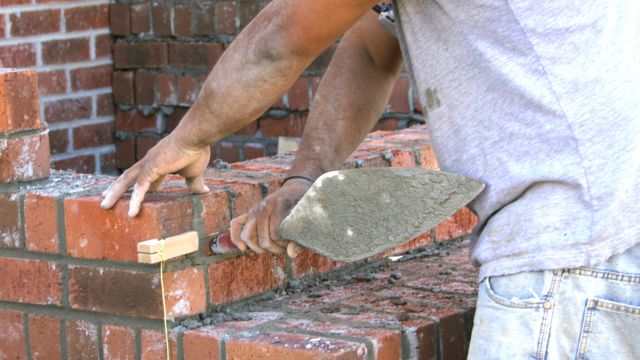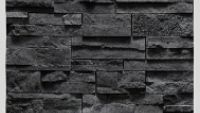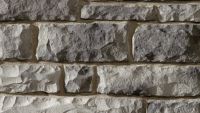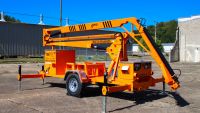What is the NCMA
From a distinctive concrete block building
abutting the takeoffs and touchdowns of jets carrying travelers to and from
Washington sits the National Concrete Masonry Association. Inside, you will
find its dedicated staff works tirelessly to unite, support, and represent the
association’s members who are producers and suppliers of concrete masonry
systems – including concrete masonry, manufactured stone veneer, segmental
retaining walls, and other hardscape systems
NCMA has been working to expand its segments
since 1918 and today, more than ever, it’s pushing forward with
unprecedented initiatives and impactful
breakthroughs. We know that concrete masonry systems deliver the best in building.
We fight the advocacy fight to safeguard the work of our members, and through the promotion we help to make concrete masonry the first choice for designers,
builders, and property owners, so communities are improved and made more
resilient.
NCMA represents over 130 concrete masonry
producers in the United States and Canada, representing nearly 60% of
production capacity. We also represent the suppliers to those producers for
various products and services, as well as the producers and suppliers of
manufactured stone veneer.
A primary area of focus for NCMA is codes and
standards advocacy. Staff participate in a wide variety of forums including
ASTM, TMS, ACI, ICC, and more. NCMA is also a member of the Masonry Alliance
for Codes and Standards (MACS) - a consortium of masonry industry groups that work
collectively to advocate and protect masonry’s position in the building code.
Recent activities include:
●
Implemented the results of several
research into updates and improvements in the building code. Primarily these
changes impacted the allowable configuration of concrete masonry units in ASTM
C90, as well as changes to the base design strength of concrete masonry. All of
these changes reduce historical conservatism in masonry design and construction
- which in turn makes masonry more cost-effective. Just this past year a
developer building with CMU in New York State was able to save $4 per square
foot after applying these code updates.
●
Efforts were successful within the
International Building Code (IBC) to redefine “grade” to mean the ground once
again. This can primarily affect podium wood construction and makes
noncombustible concrete masonry construction all that much more feasible.
●
New standards - in the past year a
new standard for dry-cast adhered veneer concrete masonry units (ASTM C1877)
was published, as well as a standard for concrete ballast block (ASTM C1844),
primarily used as ballast for rooftop equipment, including photovoltaic arrays.
● NCMA helped influence a consolidation of material standards, design provisions, and construction requirements for dry stack masonry into a design guide to be published through The Masonry Society. These standards working together and mirroring one another make it simpler for the minimum requirements to be followed to assure safety and quality performance. These requirements include items such as specified component materials, compressive strength, permissible variations in dimensions, finish appearance criteria, and more. It’s important to note that the applications for dry-stack masonry are those where masonry is not currently being used - rather than trying to replace standard mortared construction.
Beyond codes and standards, NCMA works to expand
markets through the development of technical resources, education, and government
advocacy.
The primary new resource developed over the past few years is Direct Design Software, a tool that makes it easier than ever to design a concrete masonry structure. This intuitive computer program that can allow anyone to design a concrete masonry structure in mere minutes with just a few inputs -- has dazzled in the brief period since its launch earlier this year. The software is based on TMS’s Direct Design Handbook (TMS 403) and revolutionizes a masonry project workflow both in terms of time and capability. It also allows one to easily communicate the design with fully-detailed wall elevation drawings that are not only up to the latest consensus standards and building codes, but provide a direct, simplified procedure for the structural design of concrete masonry structures for both reinforced and unreinforced masonry. It’s fully automated, as is the detailing of every block and reinforcing bar. It helps mitigate confusion through transparency by displaying full text of every calculation and decision made by the program. The user can verify every step as necessary to ensure full peace of mind. This program is a powerful new tool for engineers, designers, architects, contractors, and more.
NCMA is also committed to educating industry
professionals, architects, designers, and decision-makers. A wide variety of
online education is available through NCMA’s EDU Online system, providing
education to industry professionals on everything from the basics of concrete
masonry construction to higher-level technical topics such as energy code
compliance.
Especially for architects and designers, NCMA hosts two online education courses through AEC Daily, an education delivery system that provides free education credits to architects. These courses cover topics that architects need and the messages that the industry needs to deliver. From energy code compliance to new opportunities with changes to codes and standards, these education courses get concrete masonry topics in front of designers nationwide.
Research is a primary focus for NCMA. Within the association’s headquarters is a full-service research and development laboratory. This lab is the authority on testing of concrete masonry units and other masonry materials, providing services to members and other clients, as well as industry-focused research to improve codes and standards.
In addition to NCMA’s efforts to support members
and grow markets, the NCMA Education and Research Foundation also works to grow
the use of concrete masonry. A separate organization, the Foundation’s mission
is to advance the concrete masonry and hardscape industry by supporting
education, research and workforce development. Some recent projects include:
●
Student design competitions that
encourage students in architecture programs to investigate concrete masonry as
a solution to real-world design problems. The Foundation also supports a
national Unit Design Competition for students to design an innovative concrete
masonry unit shape to address challenges in the market.
●
Research was recently completed at
Saint Louis University that will expand articulating concrete block (ACB)
design methodology in accordance with high velocity streams, accounting for a
higher speed of flow. This new methodology is being incorporated into design
publications already, and will help expand the use of ACB’s in various
applications.
● Partnering with the Federal Highway Administration (FHWA) on research to assess the freeze/thaw performance of full-size manufactured concrete products -- namely dry-cast segmental retaining wall units (SRWs).
Additionally, NCMA has several certification
programs available for companies and individuals to differentiate their
products and services.
●
SRW installers - this program
certifies individuals who install segmental retaining walls (SRW). Through
education, testing, and work experience, certified individuals demonstrate the
knowledge necessary to successfully construct SRWs.
● MSV Product Certification - a new program in 2019, this certification ensures that manufactured stone veneer products meet the relevant ASTM specification, as well as enhanced requirements on producers for education of personnel and quality control.
With these and other programs and initiatives, NCMA strives to provide member value and increase market share for member products. Through continued research, education, and promotion, NCMA is helping make the built community stronger, safer, and more resilient.
About the Author
Nicholas R. Lang, P.E. is the Director of Business Development for the National Concrete Masonry Association (NCMA).



















